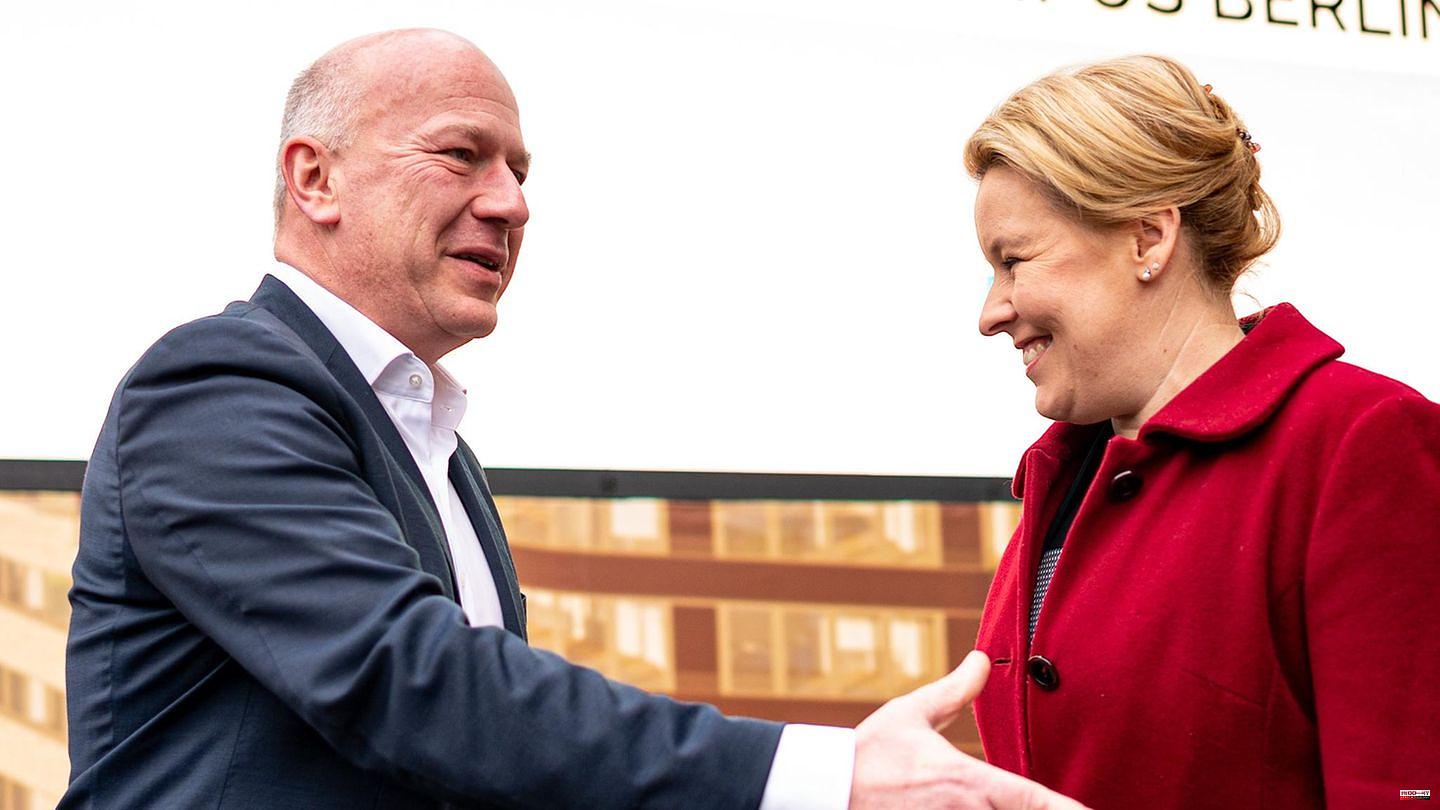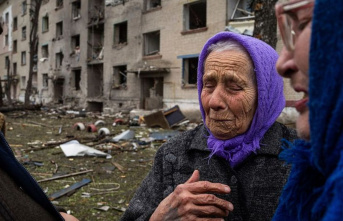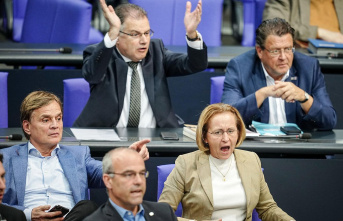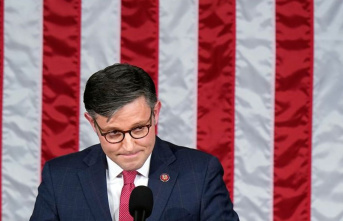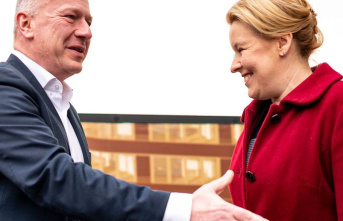After the repeat election in Berlin, there are signs of a change of power from red-green-red to black-red. The SPD wants to start coalition negotiations with the election winner, the CDU, as the governing mayor Franziska Giffey (SPD) announced on Wednesday. The SPD state board decided that in the evening with 25 to 12 votes.
According to party circles, the CDU itself is also aiming for a government alliance with the SPD. The German Press Agency learned that CDU top candidate Kai Wegner wanted to propose to the state executive committee that met on Thursday that coalition negotiations be started with the Social Democrats. The "Berliner Morgenpost" had previously reported. A party spokesman declined to comment.
According to Giffey, the SPD decided on February 12 "out of respect for the election result" for the CDU as a possible coalition partner. The previous coalition with the Greens and Left, formed in 2016 and renewed in 2021, lost around 250,000 votes in the repeat election. "You have to take that seriously when considering what you're doing." In addition, there is a clear election winner with the CDU. That has to be taken into account.
The bottom line is that there were more intersections with the CDU than with the previous partners in the previous exploratory talks. As examples, Giffey named a "functioning city", housing construction, order and security, but also transport policy and climate protection. In addition, the SPD and CDU wanted to keep the currently limited 29-euro monthly ticket. There should be no blanket expropriation of large housing companies, which the left in particular demanded. Giffey added that the Greens and the Left had questioned many things that had been agreed in 2021.
"We are doing this out of responsibility for Berlin," she said of the SPD's approach. There is hope for a real new beginning. After the conclusion of the negotiations with the CDU, the SPD is planning a member survey about the coalition agreement.
Should black and red work, Giffey would lose her position as Berlin's governing mayor. But she can imagine continuing as a senator in a possible black-red state government. "Yes, I am willing, as a senator, to make my contribution to good government work," said Giffey. "I'm doing it for Berlin, I'm doing it for the SPD."
Her successor would be CDU chairman Wegner. The CDU last provided a head of government in Berlin with Eberhard Diepgen, who was in office from 1984 to 1989 and from 1991 to 2001.
In addition to black-red or black-green, the previous three-party coalition would also have a majority in the new parliament. Since February 17, the parties have been exploring in exploratory talks whether they have a common basis for forming a government.
Greens top candidate Bettina Jarasch criticized a possible two-party alliance between SPD and CDU. "The fact that the SPD and the CDU are now obviously opting for each other shows that what we always warned about during the election campaign is coming: a coalition going backwards," she explained. Left Federal Chairman Martin Schirdewan warned of a "backward-looking concrete coalition" in Berlin. Such a step would also secure the Union a "blocking majority" in the Bundesrat.
A black-red alliance is not entirely undisputed, neither in the SPD nor in the CDU. There are quite a few supporters of the red-green-red variant among the Social Democrats, although all three parties lost support in the election. "We will oppose any attempt to form a coalition with the CDU," said Sinem Tasan-Funke, state chairman of Juso. The majority of the party executive followed the line of Giffey and her co-chairman Raed Saleh.
From Berlin CDU circles, on the other hand, it was said that the state executive board had very different assessments of the coalition options. Not everyone is convinced that the SPD is actually the better partner. There are also voices in favor of an alliance with the Greens, especially with a view to the long term. However, according to many CDU probers, the SPD had made the better offer in terms of content and, above all, had already positioned itself clearly.
The CDU won the repeat election on February 12 with 28.2 percent. SPD and Greens both got 18.4 percent. With 53 votes, the Social Democrats only have a wafer-thin lead over the Greens. They did worse than ever in a House of Representatives election. The left came to 12.2 percent, the AfD to 9.1. The FDP flew with 4.6 percent from the parliament, which now has five instead of six parliamentary groups.
The Berlin Constitutional Court declared the September 26, 2021 election invalid due to "serious systemic deficiencies" and numerous electoral errors. The court ordered a full retake. Nothing changes in the length of the five-year legislative period. So it ends in 2026.

